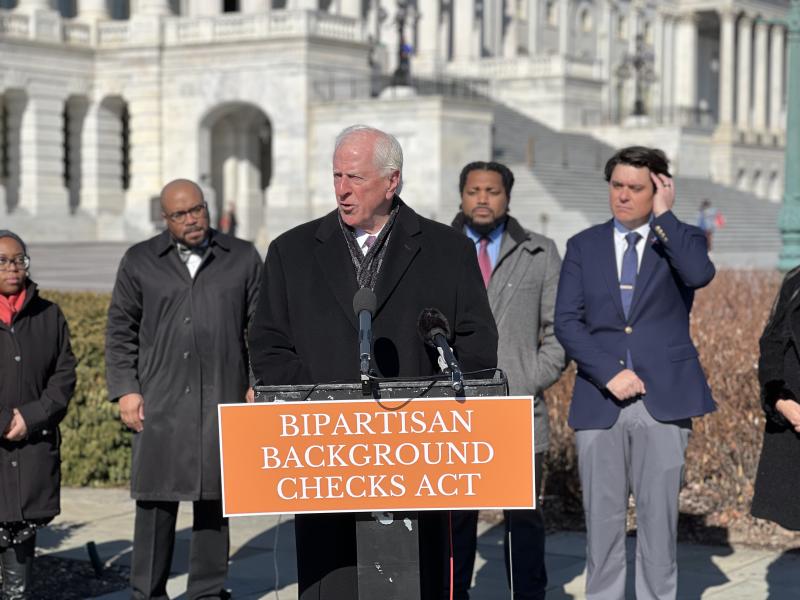Press Release
Posted:
Washington – Today, Chairman of the House Gun Violence Prevention Task Force Rep. Mike Thompson (D-CA-04) and Rep. Brian Fitzpatrick (R-PA-01) reintroduced the Bipartisan Background Checks Act (formerly known as H.R. 8).

|
“Last year, we passed the most significant gun violence prevention legislation in three decades in the wake of the tragedy in Uvalde, Texas. The Bipartisan Safer Communities Act will help save lives and is a strong step in the right direction — but we know it’s just the first step,” said Thompson. “The Bipartisan Background Checks Act is commonsense gun violence prevention legislation that will do the most important thing gun violence prevention legislation can do: save lives. By keeping weapons out of the hands of dangerous individuals, we can help keep our communities safe and reduce the threat of gun violence. I am incredibly proud to work with Rep. Brian Fitzpatrick who has been a tremendous partner on this legislation, and I look forward to a continued partnership to secure passage of this bill and deliver reforms that the majority of Americans support.” “Our communities will be safer with the expansion of background checks for firearm sales under this bill,” said Fitzpatrick. “Background checks are a simple preventive measure that are proven to help our law enforcement keep guns out of the hands of criminals. This bipartisan legislation will prevent felons, domestic abusers, and dangerously mentally ill citizens from obtaining a firearm, while protecting the constitutional rights of law-abiding Americans. I’m proud to support these common-sense reforms.” “Background checks are the foundation of any common-sense approach to preventing gun violence, which is why more than 90 percent of Americans support them,” said John Feinblatt, president of Everytown for Gun Safety. “Everytown applauds this bipartisan group of lawmakers for championing a crucial and common-sense step to keep guns out of dangerous hands.” Former Congresswoman Gabrielle Giffords: “Universal background checks will save lives and the majority of Americans support this important, foundational legislation. I applaud Representatives Brian Fitzpatrick and Mike Thompson for demonstrating the courage to act by introducing this vital bill. Earlier this month, the CDC released new data showing that more Americans than ever are dying from gun violence: in 2021, nearly 50,000 lives were lost. We urge the House to do the right thing and take up the Bipartisan Background Checks Act of 2023.” "The Brady Background Checks system, established over 25 years ago, has prevented over four million prohibited gun purchases and has saved countless lives, but there is still much work to be done. Today, approximately 1 in every 5 gun sales is completed without a background check. The passage of this legislation would expand background checks to virtually all firearm purchases, ensuring that guns are kept out of the dangerous hands of prohibited buyers. We urge the full Congress to pass this life-saving legislation as quickly as possible and send it to President Biden’s desk for signature. The time is now to take action on gun violence and make our communities safer, and we will continue to fight for common sense solutions to end this epidemic," said Kris Brown, President of Brady. The majority of the American public has supported laws requiring background checks on all firearm purchases, with polling data consistently showing that more than 90 percent of both gun owners and non-gun owners support this provision, including 72 percent of members of the National Rifle Association (NRA). Chairman Thompson has introduced background check legislation every Congress since the 2012 Sandy Hook Elementary shooting which killed 20 children and six adult staff members. The Bipartisan Background Checks Act was first introduced in the 116th Congress by Rep. Thompson and was passed in the House by a vote of 240-190, and again passed in the 117th Congress and passed the House by a vote of 227-203. The bill languished in the Senate due to the filibuster. |
